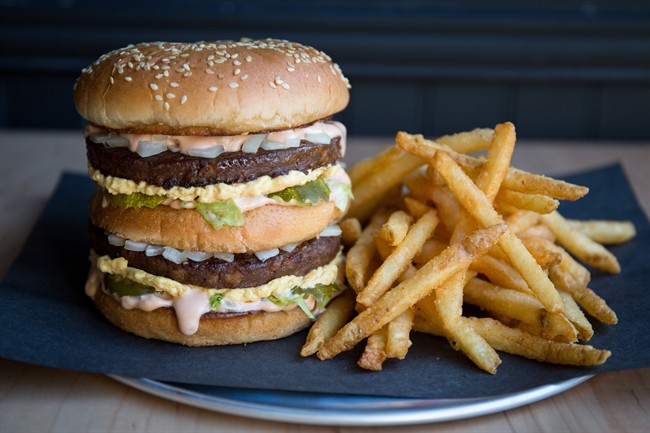It’s noon, your tummy is rumbling and when it’s finally time to eat, you gorge on a cheeseburger and fries. Weren’t you supposed to have a salad?

If you’re trying to lose weight or make healthier choices, new research is shedding light on how to avoid this all-too-common scenario. Scientists out of the University of Pennsylvania are offering one tactic to help you cut calories at mealtime: plan out – and even order – your meals at least one hour before eating.
You’re more likely to pick high-calorie meals when you order just before you eat, the experts warn. But you tend to choose much more wisely when you’re making meal decisions on a full stomach.
“Our results show that ordering meals when you’re already hungry and ready to eat leads to an overall increase in the number of calories ordered, and suggest that by ordering meals in advance, the likelihood of making indulgent purchases is drastically reduced,” said Dr. Eric VanEpps, a postdoctoral researcher in Pennsylvania.
“The implication is that restaurants and other food providers can generate health benefits for their customers by offering the opportunity to place advance orders,” VanEpps said.
READ MORE: Follow this one tip if you’re trying to lose weight, study suggests
In the study, VanEpps and his team combed over more than 1,000 lunch orders placed any time after 7 a.m. to be picked up between 11 a.m. and 2 p.m. If people didn’t eat their lunch right away, they saved about 38 calories for every hour of delay between ordering and eating.
- Shoppers faces proposed class action over claims company is ‘abusive’ to pharmacists
- ‘Bacterial vampirism’: Deadly pathogens attracted to human blood, study finds
- Most Canadian youth visit dentists, but lack of insurance a barrier
- Landmark smoking ban that would phase out sales passes U.K. parliament
When it came to students, if lunchtime orders were placed in advance, they chose meals that were about 120 calories less than what they’d pick right before eating. It didn’t matter if they skipped breakfast, and, overall, people were just as satisfied with the meals they picked – healthier or not.
READ MORE: This food will make you feel fuller if you’re trying to lose weight
The researchers say it makes sense: people don’t often make “far-sighted” choices when they’re in the heat of the moment.
It builds on advice often doled out by weight-loss experts, too: they say you should avoid grocery shopping on an empty stomach. When you’re hungry, you’re going to pile up your grocery cart with unhealthy fare.
VanEpps’ full findings were published in the Journal of Marketing Research.
carmen.chai@globalnews.ca
Follow @Carmen_Chai


Comments